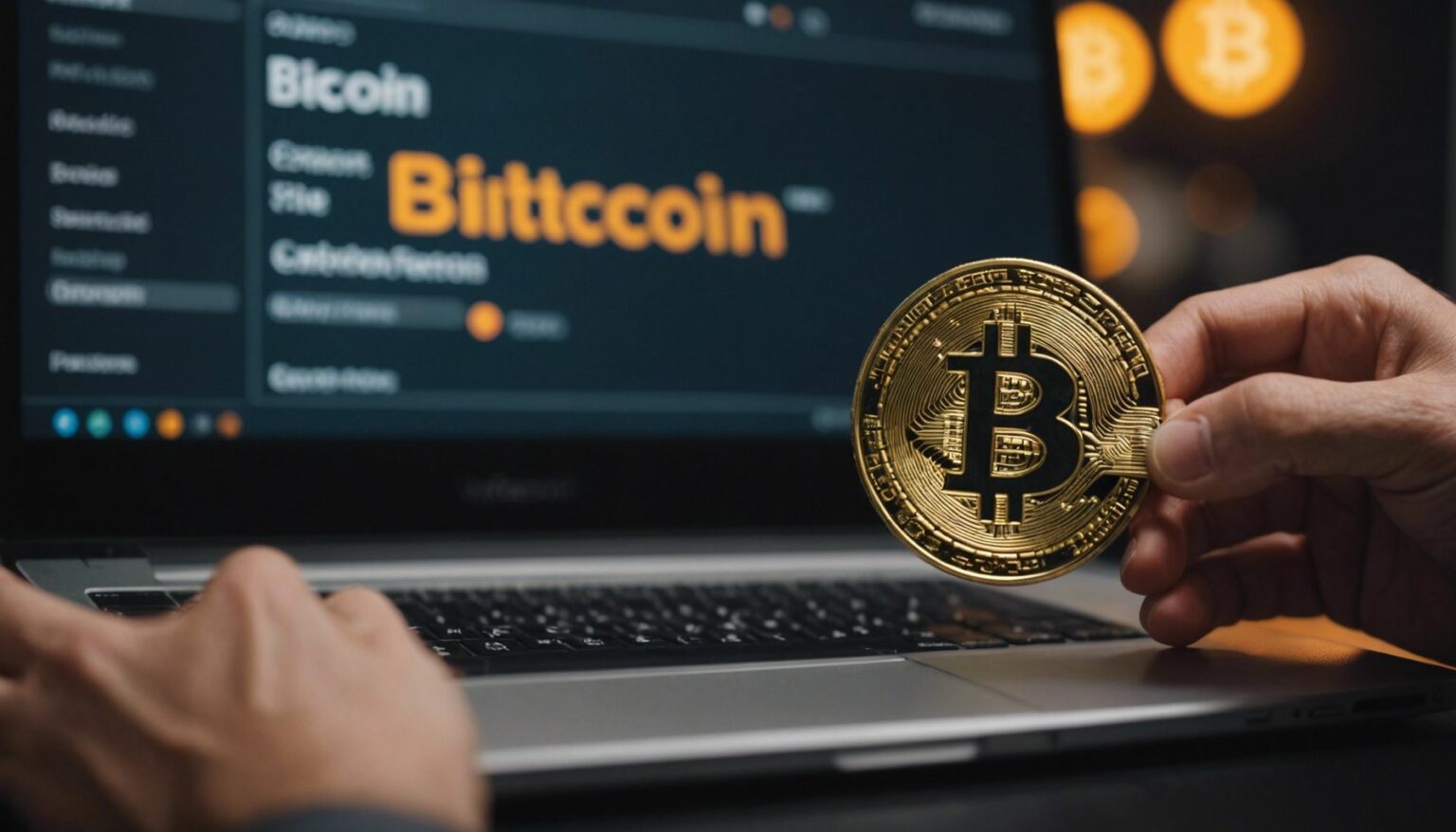Welcome to your ultimate guide to getting started with cryptocurrency! Whether you’re completely new to the world of digital currencies or looking to deepen your understanding, this guide will provide you with all the essential information you need. From understanding the basics of cryptocurrency and blockchain technology to setting up your first wallet, buying your first crypto, and even exploring advanced topics like decentralized finance and NFTs, we’ve got you covered.
Key Takeaways
- Understanding the fundamental concepts of cryptocurrency and blockchain technology is crucial for any beginner.
- Choosing the right crypto wallet and setting it up correctly is the first step to securing your digital assets.
- Buying cryptocurrency involves selecting a reliable exchange and following best security practices.
- Basic trading knowledge, including market orders and technical analysis, can help you make informed decisions.
- Staying safe in the crypto world requires recognizing scams, securing your assets, and understanding legal considerations.
Understanding Cryptocurrency and Blockchain
What is Cryptocurrency?
Cryptocurrencies are digital or virtual currencies that use cryptography for security. Unlike traditional currencies issued by governments, cryptocurrencies operate on decentralized networks based on blockchain technology. Bitcoin was the first cryptocurrency, and it remains the most well-known and widely used. Cryptocurrencies can be used for various purposes, including online purchases, investments, and as a means of transferring value across borders.
How Blockchain Technology Works
Blockchain is a kind of database that records and timestamps every entry into it. The best way to think of a blockchain is like a running receipt of transactions. When a blockchain database powers cryptocurrency, it records and verifies transactions in the currency, verifying the currency’s movements and who owns it. A blockchain is a digitally distributed, decentralized, public ledger that exists across a network. This decentralized nature makes it highly secure and transparent.
Key Differences Between Coins and Tokens
- Coins: These are digital currencies that operate independently on their own blockchain (e.g., Bitcoin, Ethereum).
- Tokens: These are digital assets created on existing blockchains (e.g., ERC-20 tokens on the Ethereum blockchain). Tokens can represent a variety of assets or utilities, such as loyalty points or even voting rights in a decentralized application.
Setting Up Your First Crypto Wallet
Setting up your first crypto wallet is a crucial step in your cryptocurrency journey. A crypto wallet is essential for securely storing and managing your digital assets. Here’s a guide to help you get started.
Types of Crypto Wallets
Crypto wallets come in various forms, each with its own set of features and security levels. The main types include:
- Hot Wallets: These are connected to the internet and are more convenient for frequent transactions. Examples include MetaMask and TrustWallet.
- Cold Wallets: These are offline and provide a higher level of security. Examples include hardware wallets like Ledger and Trezor.
- Paper Wallets: These involve printing your private keys on paper, offering a secure but less convenient option.
How to Choose a Wallet
When choosing a crypto wallet, consider the following factors:
- Security: Evaluate the security features of the wallet. Cold wallets are generally more secure than hot wallets.
- Ease of Use: Ensure the wallet is user-friendly, especially if you are a beginner.
- Compatibility: Check if the wallet supports the cryptocurrencies you plan to store.
- Cost: Some wallets, especially hardware wallets, come with a cost. Weigh the benefits against the price.
Step-by-Step Wallet Setup
Follow these steps to set up your first crypto wallet:
- Create an Account: First, create an account on a centralized exchange.
- Install a Hot Wallet: Create a hot wallet like MetaMask or TrustWallet by adding it as an extension to your browser.
- Secure Your Passphrase: Physically write down your secret passphrase on paper and keep it safe.
- Transfer Crypto: Transfer crypto from the wallet on your centralized exchange to your hot wallet.
- Choose a Blockchain Ecosystem: Evaluate and choose a blockchain ecosystem you want to use, such as Ethereum, Polygon, or Binance Smart Chain.
Buying Your First Cryptocurrency
Buying your first cryptocurrency can be an exciting yet daunting experience. It’s essential to approach this process with a clear understanding of the steps involved and the potential risks.
Basics of Crypto Trading
Understanding Market Orders and Limit Orders
When you start trading cryptocurrencies, it’s essential to understand the difference between market orders and limit orders. Market orders are executed immediately at the current market price, while limit orders are executed only at a specified price or better. This distinction is crucial for executing trades effectively.
Introduction to Technical Analysis
Technical analysis involves analyzing past market data, primarily price and volume, to forecast future price movements. Traders use various tools and indicators, such as moving averages and relative strength index (RSI), to make informed decisions. This method is widely used in the crypto trading community.
Common Trading Strategies
There are several trading strategies that beginners can adopt:
- Day Trading: Buying and selling within the same day to take advantage of short-term price movements.
- Swing Trading: Holding positions for several days or weeks to benefit from expected price swings.
- HODLing: Holding onto your assets for an extended period, regardless of market volatility, based on the belief that their value will increase over time.
Each strategy has its own set of risks and rewards, so it’s important to choose one that aligns with your risk tolerance and investment goals.
Staying Safe in the Crypto World
When diving into the world of cryptocurrency, security should be your top priority. The decentralized and digital nature of crypto makes it a target for various scams and frauds. Here are some essential tips to help you stay safe.
Recognizing Scams and Frauds
Cryptocurrency scams are rampant, and it’s crucial to be able to identify them. Be wary of promises of guaranteed returns, unsolicited offers, and schemes that sound too good to be true. Always verify the legitimacy of any crypto-related opportunity before investing your money.
Best Practices for Securing Your Assets
To keep your crypto investment secure, follow these best practices:
- Deal only with reputable exchanges and digital wallet providers.
- Protect access with strong passwords, two-factor verification, and secure internet connections.
- Be vigilant about phishing scams that target crypto users.
- Don’t share your password or key with anyone.
- Consider using cold storage to keep your assets offline and out of reach from hackers.
Legal and Regulatory Considerations
Understanding the legal landscape of cryptocurrency in your region is vital. Regulations can vary significantly from one country to another, and staying informed about these laws can help you avoid legal pitfalls. Make sure to comply with all relevant regulations to ensure your crypto activities are lawful and secure.
Exploring Decentralized Finance (DeFi)
What is DeFi?
DeFi, or decentralized finance, is working to replace centralized traditional finance. By using smart contracts on platforms like Ethereum, DeFi applications provide financial services without the need for traditional banks. This movement is changing the financial landscape and making financial services more inclusive and accessible to a global audience.
Popular DeFi Applications
Through these applications, users can lend, borrow, and trade with more autonomy and lower fees. Some popular DeFi applications include:
- Lending platforms
- Decentralized exchanges (DEXs)
- Yield farming
- Stablecoins
Risks and Rewards of DeFi
While DeFi offers numerous benefits, it also comes with its own set of risks. Users should be aware of:
- Smart contract vulnerabilities
- Market volatility
- Regulatory uncertainties
Despite these risks, the potential rewards make DeFi an exciting area for both new and experienced crypto enthusiasts.
Advanced Topics for Crypto Enthusiasts
Smart Contracts and Their Uses
Smart contracts are self-executing contracts with the terms of the agreement directly written into code. They eliminate the need for intermediaries and can be used in various applications such as supply chain management, real estate, and finance. Understanding how to create and deploy smart contracts can open up new opportunities in the crypto space.
Introduction to NFTs
Non-Fungible Tokens (NFTs) are unique digital assets that represent ownership of a specific item or piece of content, often art or collectibles. NFTs have gained significant popularity, and mastering the process of navigating cryptocurrency exchanges with confidence can help you explore different exchange types, trading strategies, and best practices for buying and selling NFTs.
Future Trends in Cryptocurrency
The cryptocurrency landscape is constantly evolving. Future trends may include advancements in blockchain technology, increased adoption of decentralized finance (DeFi), and the integration of cryptocurrencies into everyday transactions. Staying informed about these trends will help you make better investment decisions and stay ahead in the crypto world.
Dive deep into the world of cryptocurrency with our ‘Advanced Topics for Crypto Enthusiasts’ section. Stay ahead of the curve with insights on Bitcoin market trends, the latest in altcoin news, and comprehensive guides on future trading. Don’t miss out on the latest updates and expert analysis. Visit our website to explore more!
Conclusion
Embarking on your cryptocurrency journey can seem daunting, but with the right guidance and resources, it becomes an exciting and rewarding endeavor. This ultimate guide has provided you with the foundational knowledge and practical steps to get started in the crypto world. From understanding the basics of Bitcoin and Ethereum to creating your own cryptocurrency and making informed investments, you are now equipped with the tools to navigate this dynamic landscape. Remember, continuous learning and staying updated with the latest trends and developments are key to success in the ever-evolving world of cryptocurrencies. Happy investing and exploring!
Frequently Asked Questions
What is cryptocurrency?
Cryptocurrency is a type of digital or virtual currency that uses cryptography for security. It operates independently of a central bank and allows for secure, peer-to-peer transactions over the internet.
How does blockchain technology work?
Blockchain technology is a decentralized ledger that records all transactions across a network of computers. Each block in the chain contains a number of transactions, and each new transaction is added to the blockchain after being verified by the network.
What are the key differences between coins and tokens?
Coins are digital currencies that operate on their own blockchain (like Bitcoin or Ethereum), while tokens are digital assets created on existing blockchains (like ERC-20 tokens on the Ethereum network).
How do I choose a cryptocurrency wallet?
When choosing a cryptocurrency wallet, consider factors such as security features, user-friendliness, compatibility with different cryptocurrencies, and whether you prefer a hardware, software, or paper wallet.
What are some common scams in the crypto world?
Common scams include phishing attacks, Ponzi schemes, fake ICOs (Initial Coin Offerings), and fraudulent exchanges. Always do thorough research and use reputable platforms to avoid falling victim to these scams.
What is Decentralized Finance (DeFi)?
Decentralized Finance (DeFi) refers to a new financial system built on blockchain technology that aims to offer traditional financial services (like lending, borrowing, and trading) without the need for intermediaries like banks.


